Harambee Conference Empowers African-American Community College and High School Students
Recent reports indicate that while the number of black students entering college and completing their degrees has risen in the past few years, this population still struggles with lower graduation rates and higher drop-out rates compared to whites, Latinx and Asian students in both public and private institutions. This struggle was at the core of the Harambee Conference, which welcomed black students from nearby high schools and — for the first time in the annual event’s history — local community colleges to the California State University, Northridge campus.
Swahili for “let us pull together,” Harambee takes place during Black History Month and aims to empower African-American students, encouraging them to continue to work toward academic and professional success. The Feb. 22 half-day program included talks by CSUN faculty and staff, and activities with current CSUN students.
The theme for the 2019 conference was “Navigating Your Path.” Sessions focused on inspiring students to strive toward success and overcome socioeconomic hurdles, including racial discrimination and poverty.
In past years, the conference primarily targeted high school students. The 2018 event drew more than 300 students from 13 high schools across the greater Los Angeles area.
This year, Harambee’s 14th, marked a new milestone by inviting students from nearby community colleges to CSUN. The popular conference attracted 343 attendees from 21 high schools, and 41 attendees from five community colleges.
Community college students looking to transfer often have a hard time transitioning to four-year university life and can benefit from the Harambee workshops, sessions and message, said Gigi McGuire, assistant director of Student Outreach and Recruitment at CSUN.
“Let’s find students from some of our local community colleges, and let’s empower them as well, as we’ve been doing for the high schoolers,” she said. “Our purpose is to empower the students to be good and successful college students, wherever they go. We want them to get to know what it’s like to be an African-American student in college and what kind of tools they might need to be successful.”
The conference began with campus tours for high school students at 9 a.m., and community college students at 10 a.m. After exploring the CSUN grounds, students returned to the University Student Union (USU) for official welcome addresses by Dwayne Cantrell, associate vice president for Student Access and Support Services, and Beverly Ntagu, president of Associated Students. High schoolers were split into smaller groups to attend different sessions inside the Northridge Center. When the sessions and activities were done, the event culminated in a joint lunch where high school and community college students came together and interacted with one another.
Even at a university committed to diversity, CSUN administrators noted that there is much more left to do.
“[CSUN] is a very, very diverse institution. But we still, as many other colleges and universities in the country, have a low enrollment for African-American, or black, students,” said Cantrell. He noted that 5 percent of CSUN’s student population — about 2,000 students — are African-American, and that he hopes to see that number vastly grow.
High school students split into different rooms throughout the USU Northridge Center to listen to talks by a variety of CSUN staff and faculty members, including professors from the Departments of Africana studies, journalism and Deaf studies, who used their own expertise to deliver messages about academic and professional success. Topics included: struggling through college life and the importance of graduating, maximizing education in order to break out of poverty, capitalizing on new available technologies, and more.
Emboldening the community college students in the USU Grand Salon, Nakaya Manning, an advising specialist in the College of Social and Behavioral Sciences, spoke about her own experience as an African-American, first-generation college student at the University of Georgia, and hoped to impart wisdom about how to thrive in a setting where African-Americans are the minority. She shared how she navigated a world of racial stereotypes and what she called ‘stereotype threats’ — the risk of doing things that reinforces a stereotype about your group.
The setting of University of Georgia, despite being mostly white, was not too hostile, Manning said. “I didn’t fear the stereotypes. I didn’t feel like I needed to be the shining example of African-Americans. I felt like there were enough of us there, and we were okay,” she said.
However, without the overt discriminatory force depressing black students’ performance in more diverse institutions, Manning said it is even more important, then, that black students succeed. She emphasized that succeeding as an individual person of color is a way to strengthen your people.
Speakers Vera Hampton, associate director of Student Outreach and Recruitment, and William Watkins, vice president of Student Affairs and dean of students, also presented to the community college group.
In the future, McGuire said, she hopes to organize two separate conference days for community college and for high school students, in order to have more space and resources to accommodate more students from both constituencies.
“I would like to have some more buses, so I can bring more high schoolers,” she said. “I’m trying to grow that part of it, to get up to maybe 500 students. There are schools I have to turn down every year, because [the conference] has already reached [its] capacity. But it’s a good problem!”
The Harambee Conference was coordinated by the office of Student Outreach and Recruitment, and sponsored by the division of Student Affairs. It was part of the campus-wide celebration of Black History Month 2019, spearheaded by the Department of Africana Studies, which is also celebrating its 50th year anniversary this year. For more information, please visit http://www.csun.edu/social-behavioral-sciences/africana-studies.

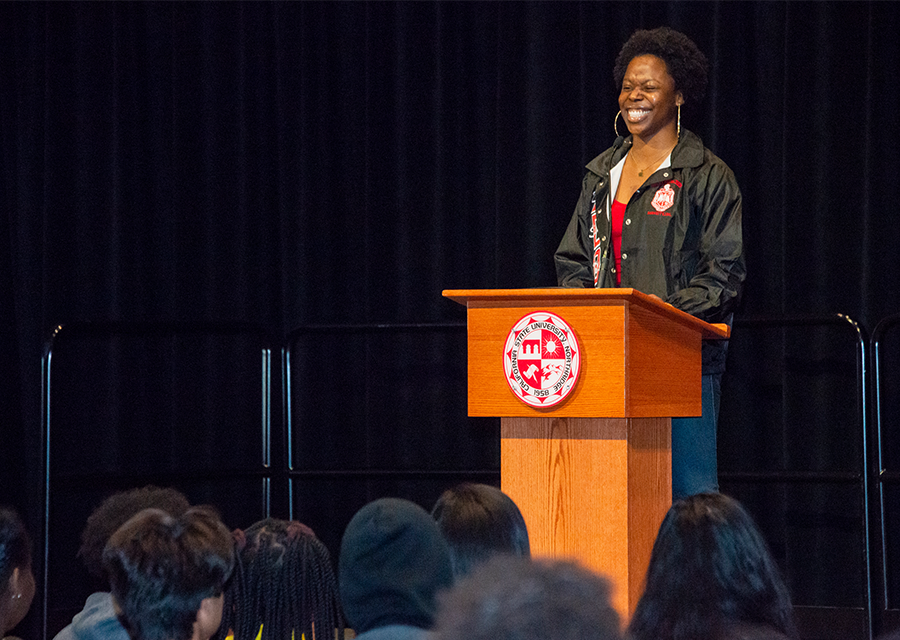

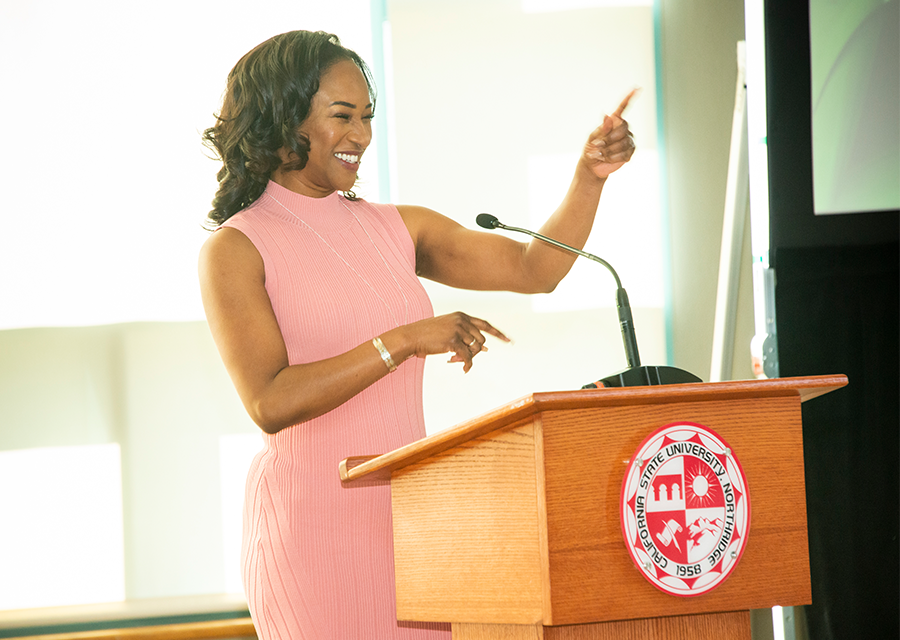
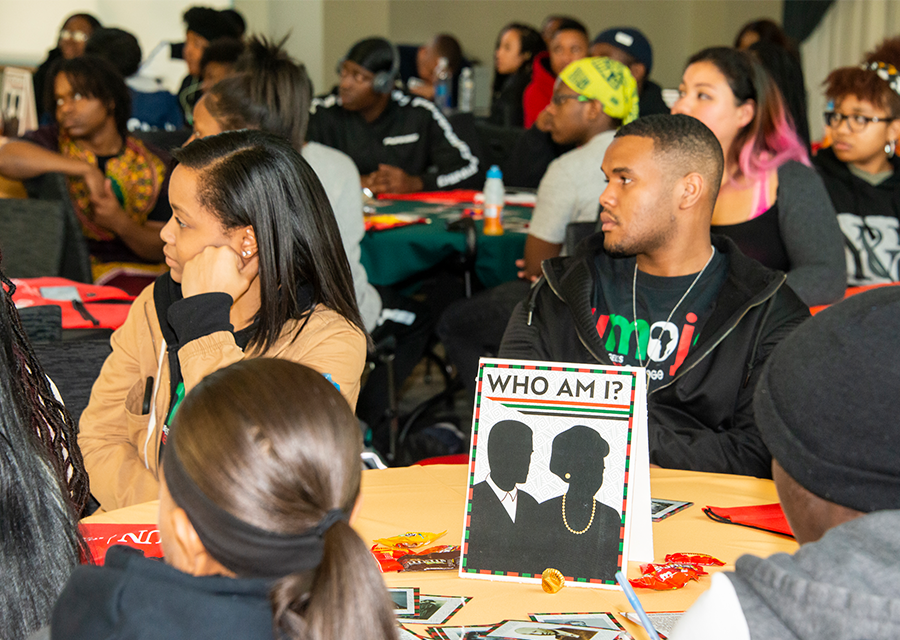
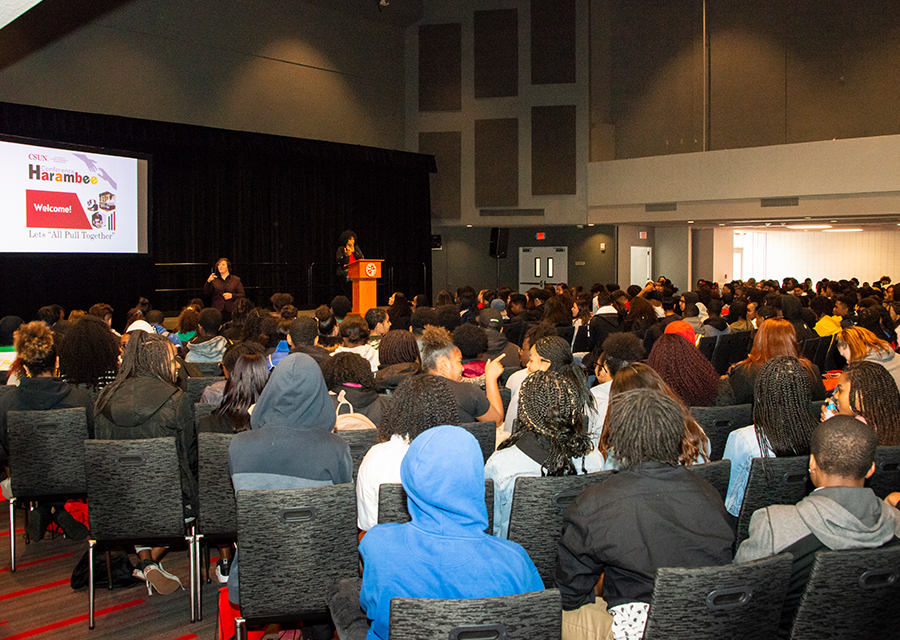
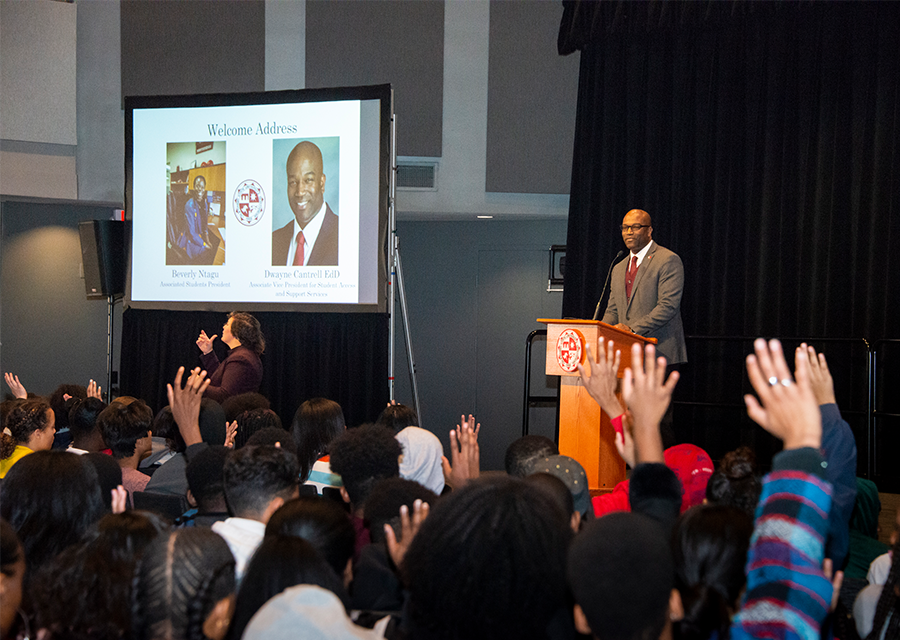
 experience
experience